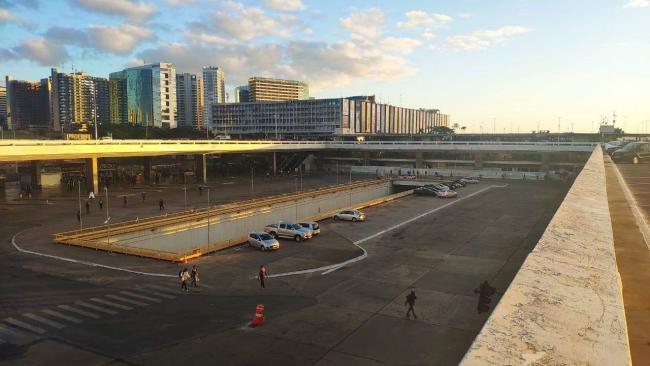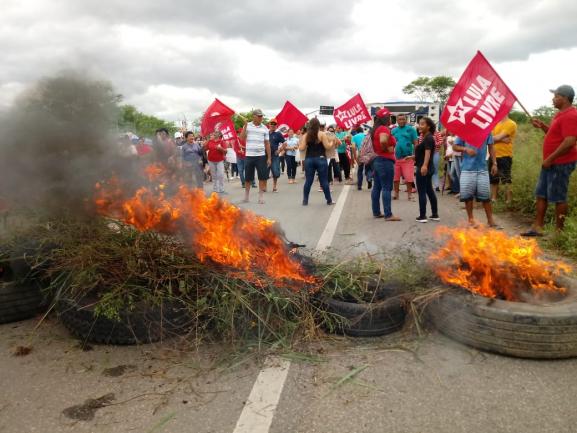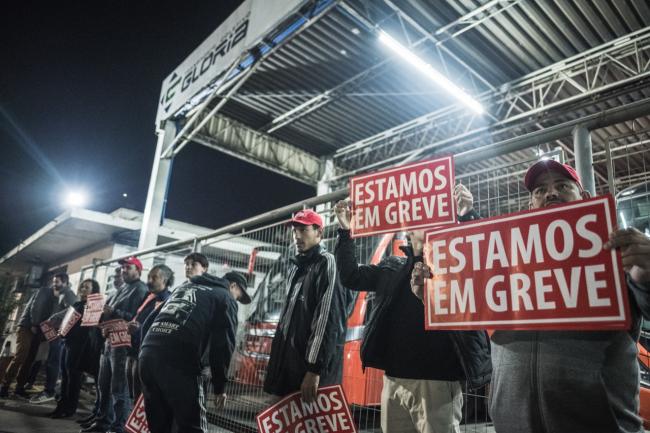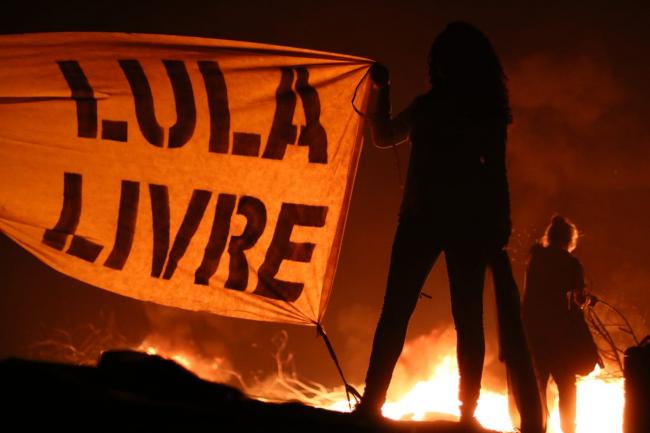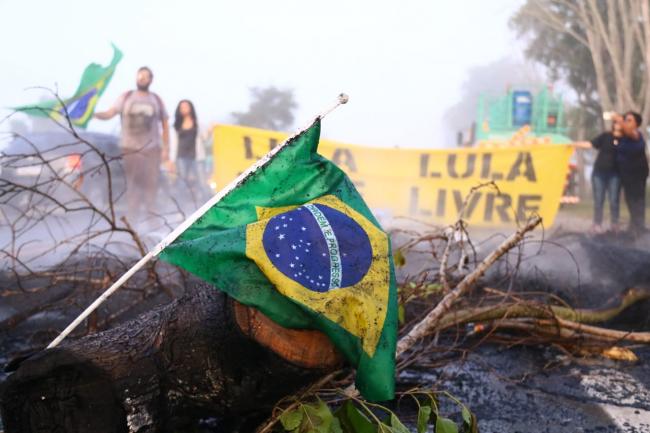Millions of Brazilians participated in a general strike and mass demonstration on Friday, June 14 against far-right president Jair Bolsonaro’s push for pension reform. It was one of the largest mobilizations against Bolsonaro’s government since he took office in January. Actions were held in more than 380 cities around the country.
If approved, the pension reform will set a minimum retirement age and reduce benefits while inflating the number of years necessary to work in order to achieve those benefits. Bolsonaro’s finance minister Paulo Guedes says the reform is necessary to stave off financial disaster. The head of the Brazil’s lower house says it could go to a vote by June 26.
Unions say the reform is a push toward privatization. “The heart, the essence, of this reform is the privatization of social security,” said Anna Julia Rodrigues, the president of the Santa Catarina state chapter of Brazil’s largest labor federation, the CUT.
According to the CUT, 45 million people participated in the nation-wide strike. Students and teachers were among those who took to the streets en masse. They have rallied twice over the last month against a huge 30 percent budget cut federal universities and schools, which is expected to impact funding for research, grants, student transportation, and diverse programs.
Students and teachers also fear the impact on their own lives if Bolsonaro’s pension reform is approved.
“This reform can’t pass, because we know it’s an attack on workers and students. And we’re soon going to be the workforce of the country,” said Isis Leite, a high school student who attended the march in Florianopolis. “We have to defend our right to retire, or else we are going to work until we die.”
During the general strike, protesters also called for the release of former president Luiz Inácio Lula da Silva. The strike came just days after the publication of recent bombshell leaks, published by The Intercept, that provide definitive proof that former judge Sergio Moro collaborated with federal prosecutors against Lula to convict him on corruption charges. The revelations did not come as a surprise to many on the Left who have long held that Lula was imprisoned on trumped up charges in order to block him from returning to power. With Lula barred from running, Bolsonaro won the election and appointed Moro his Justice Minister, a move that many saw as evidence that the Lava Jato investigations had been politically motivated from the start.



